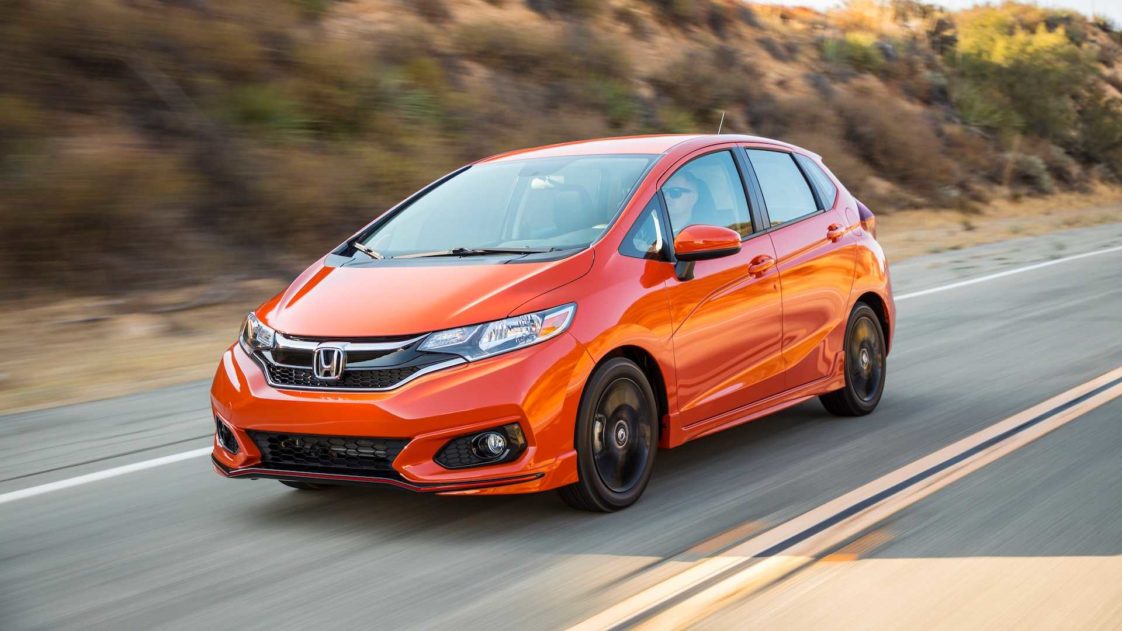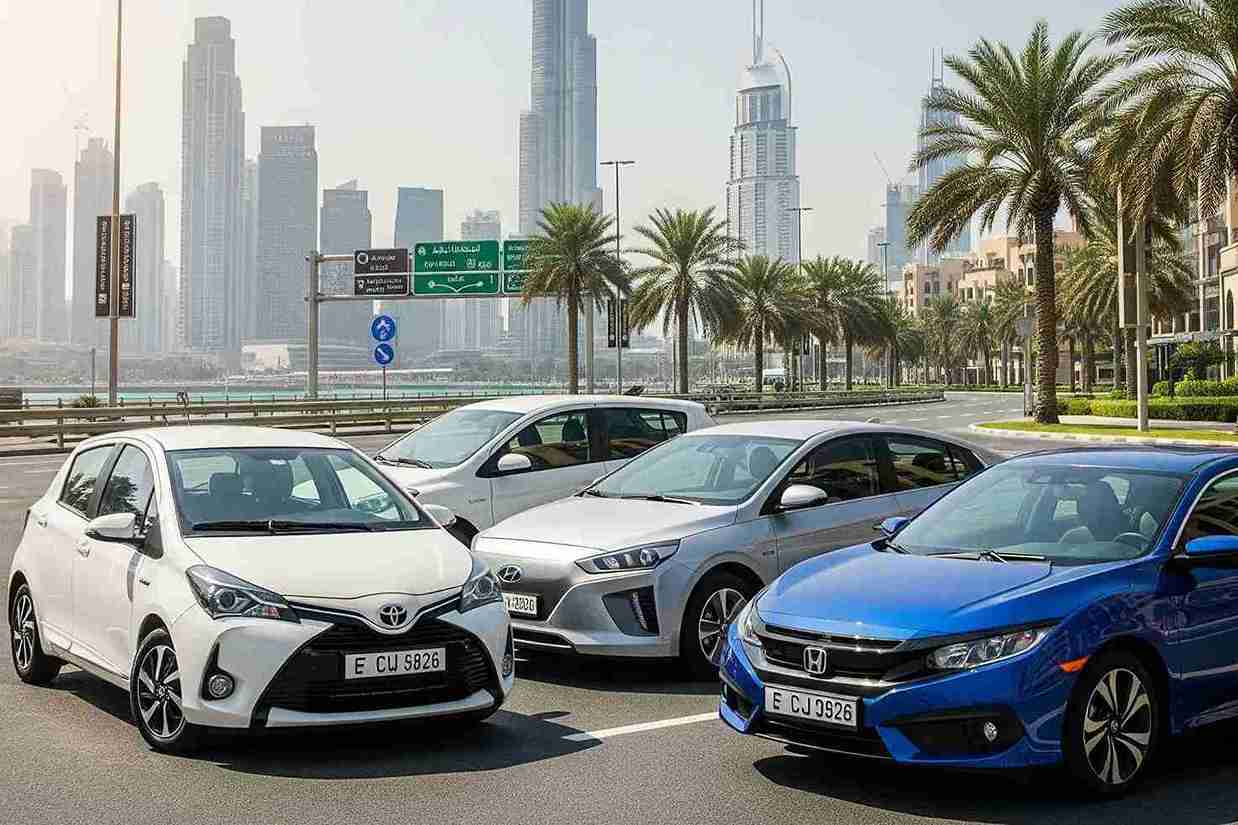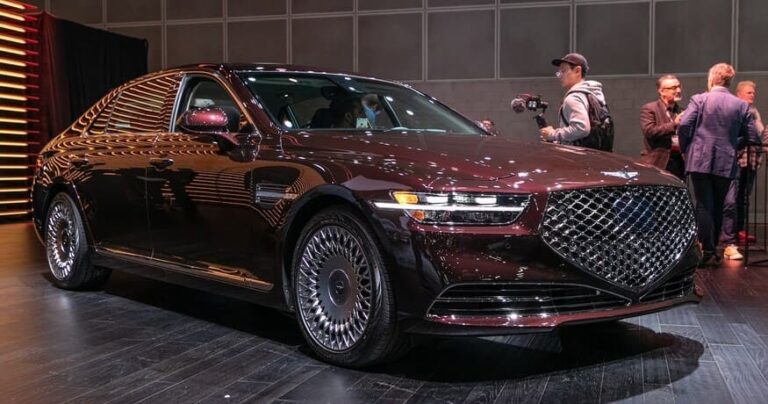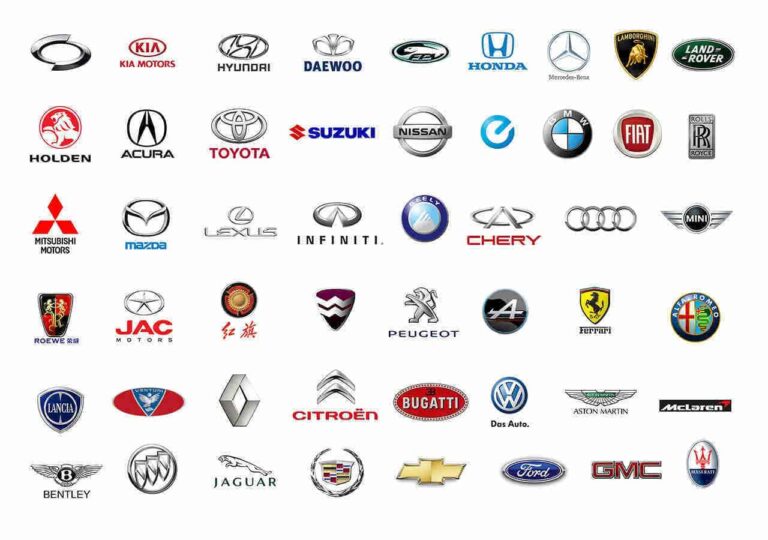Most Fuel Efficient Car Brands: Navigating the Road to Savings and Sustainability
Most Fuel Efficient Car Brands: Navigating the Road to Savings and Sustainability cars.truckstrend.com
In an era defined by fluctuating fuel prices, growing environmental consciousness, and rapid technological advancements, the pursuit of fuel-efficient vehicles has never been more critical. Beyond the immediate financial relief at the pump, choosing a fuel-efficient car contributes to a smaller carbon footprint, reduces reliance on fossil fuels, and often translates to a higher resale value. But what exactly makes a car fuel-efficient, and which brands consistently lead the pack in delivering outstanding mileage? This comprehensive guide delves into the world of fuel-efficient car brands, offering insights, practical advice, and a look at the future of automotive efficiency.
Understanding Fuel Efficiency: Beyond the MPG Sticker
Most Fuel Efficient Car Brands: Navigating the Road to Savings and Sustainability
Fuel efficiency is a measure of how far a vehicle can travel per unit of fuel. While the familiar "Miles Per Gallon" (MPG) rating is the most common metric for gasoline and hybrid vehicles, the landscape has broadened to include "Miles Per Gallon equivalent" (MPGe) for electric vehicles (EVs) and plug-in hybrids (PHEVs), which measures the energy consumption of electric cars in a way that’s comparable to gasoline vehicles.
Several factors influence a vehicle’s fuel efficiency:
- Engine Technology: Advanced internal combustion engines (ICE) with direct injection, turbocharging, and cylinder deactivation enhance efficiency. Hybrid powertrains combine gasoline engines with electric motors for superior city mileage, while EVs run solely on electricity.
- Aerodynamics: A sleek, low-drag design reduces the energy needed to push the car through the air.
- Weight: Lighter vehicles require less energy to accelerate and maintain speed.
- Transmission: Continuously Variable Transmissions (CVTs) and advanced multi-speed automatics often optimize engine performance for better efficiency.
- Tire Rolling Resistance: Low-rolling-resistance tires are designed to minimize friction with the road.
- Driving Habits: Aggressive acceleration, hard braking, and excessive speeding significantly reduce fuel economy.

Understanding these underlying principles is key to appreciating why certain brands excel in this domain.
Top Contenders: Leading the Charge in Fuel Efficiency
While almost every manufacturer now offers some form of fuel-efficient vehicle, a few brands have consistently prioritized and innovated in this space, building a reputation for superior mileage across their lineups.

1. Toyota: Unquestionably the pioneer and long-standing leader in hybrid technology, Toyota’s commitment to fuel efficiency is legendary. Their Prius line virtually synonymous with hybrids, but their expertise extends to highly efficient versions of popular models like the Camry, RAV4, Highlander, and Sienna. Toyota’s Hybrid Synergy Drive system is renowned for its reliability and seamless transition between gasoline and electric power, making them a top choice for consistent real-world fuel savings. Their recent expansion into Plug-in Hybrids (PHEVs) like the RAV4 Prime and pure EVs like the bZ4X further solidifies their position.
2. Honda: A close competitor to Toyota, Honda has also built a strong reputation for producing efficient engines and reliable vehicles. While their hybrid lineup might be slightly smaller than Toyota’s, models like the CR-V Hybrid and Accord Hybrid offer excellent fuel economy without sacrificing driving dynamics or practicality. Honda’s traditional gasoline engines, particularly in models like the Civic and Fit, have also historically delivered impressive MPG figures due to their well-engineered powertrains.
3. Hyundai & Kia (Hyundai Motor Group): These South Korean giants have made incredible strides in fuel efficiency and electrification in recent years. They offer a vast array of hybrids (Niro, Elantra Hybrid, Sonata Hybrid, Sportage Hybrid), plug-in hybrids (Tucson PHEV, Santa Fe PHEV, Sorento PHEV), and some of the most compelling electric vehicles on the market (Ioniq 5, EV6, Kona Electric, Niro EV). Their commitment to diverse powertrain options and competitive pricing makes them a formidable force in the fuel-efficient segment.
4. Lexus: As Toyota’s luxury division, Lexus inherits the best of Toyota’s hybrid technology and elevates it with premium comfort and performance. Lexus hybrids, such as the RX Hybrid, ES Hybrid, and NX Hybrid, offer a compelling blend of luxury, refinement, and impressive fuel economy, proving that efficiency doesn’t have to come at the expense of prestige.
5. Ford: While historically known for trucks and performance cars, Ford has significantly invested in fuel-efficient technologies. Their EcoBoost engines offer a blend of power and efficiency, and they’ve introduced highly successful hybrid and electric models. The Maverick compact pickup, with its standard hybrid powertrain, is a game-changer, offering exceptional fuel economy in a highly practical package. The F-150 PowerBoost hybrid demonstrates efficiency in a full-size truck, and the Mustang Mach-E is a strong contender in the EV space.

6. Tesla: While not a "fuel" efficient brand in the traditional sense (as they use electricity), Tesla is the quintessential energy-efficient brand. As a pure EV manufacturer, every Tesla model, from the Model 3 to the Model S, X, and Y, offers zero tailpipe emissions and incredibly low "fuel" costs when charged at home. Their advanced battery technology and efficient powertrains set the benchmark for electric vehicle range and performance, making them a top choice for those looking to eliminate gasoline consumption entirely.
The Rise of Hybrid and Electric Vehicles (EVs)
The conversation around fuel efficiency is increasingly dominated by hybrid and electric powertrains.
- Hybrids (HEVs): These vehicles combine a gasoline engine with an electric motor and a small battery. They typically offer better fuel economy than conventional gasoline cars, especially in city driving where the electric motor can power the car at low speeds or assist the engine. They don’t require external charging.
- Plug-in Hybrids (PHEVs): PHEVs have a larger battery than HEVs and can be charged from an external source. They offer a significant all-electric range (typically 20-50 miles) before the gasoline engine kicks in, making them ideal for daily commutes that can be done entirely on electricity, with the gasoline engine providing range assurance for longer trips.
- Battery Electric Vehicles (BEVs): These are purely electric, running solely on battery power. They produce zero tailpipe emissions, offer instant torque, and have lower running costs due to cheaper electricity compared to gasoline. Their efficiency is measured in MPGe, highlighting how far they can travel on the energy equivalent of one gallon of gasoline.
These technologies are not just improving efficiency; they are fundamentally redefining what "fuel-efficient" means, pushing towards a cleaner, more sustainable future for transportation.
Choosing Your Fuel-Efficient Car: Important Considerations
Selecting the right fuel-efficient vehicle involves more than just looking at the MPG numbers.
- Your Driving Habits: Do you primarily drive in the city, on highways, or a mix? Hybrids excel in stop-and-go city traffic, while conventional gasoline cars can be efficient on highways. PHEVs and EVs are best if you have access to charging and a relatively consistent commute.
- Budget: Fuel-efficient vehicles, especially hybrids and EVs, might have a higher initial purchase price. However, consider the long-term savings in fuel costs, lower maintenance (for EVs), and potential government incentives (tax credits, rebates).
- Infrastructure (for EVs/PHEVs): Assess your ability to charge at home (Level 2 charger is ideal) and the availability of public charging stations along your common routes.
- Vehicle Size and Type: Do you need an SUV, a sedan, or a compact car? Most segments now offer fuel-efficient options.
- Resale Value: Fuel-efficient models, particularly popular hybrids and EVs, often retain their value well due to sustained demand.
- Environmental Impact: If reducing your carbon footprint is a primary goal, EVs offer the lowest direct emissions.
Maximizing Your Vehicle’s Fuel Efficiency: Practical Tips
Even with the most efficient car, your driving habits play a crucial role in real-world fuel economy.
- Drive Smoothly: Avoid rapid acceleration and sudden braking. Smooth, gradual inputs are key.
- Maintain Proper Tire Pressure: Under-inflated tires increase rolling resistance and reduce MPG. Check them regularly.
- Regular Maintenance: Keep your engine tuned, replace air filters, and get oil changes as recommended. A well-maintained engine runs more efficiently.
- Reduce Weight: Remove unnecessary items from your trunk or back seat. Every extra pound impacts efficiency.
- Limit Idling: If you’re going to be stopped for more than 30 seconds, turn off your engine (if safe and practical).
- Use Cruise Control: On highways, cruise control helps maintain a consistent speed, preventing unnecessary acceleration and deceleration.
- Plan Routes: Use navigation apps to avoid traffic jams and find the most efficient routes.
- Use AC Wisely: While necessary, excessive AC use can reduce fuel economy. Use recirculate mode when possible.
Challenges and Future Outlook
While the shift towards fuel-efficient vehicles is clear, challenges remain. The initial cost of advanced hybrid and EV technology can be higher, range anxiety (for EVs) is a concern for some, and the charging infrastructure, though growing, still needs expansion. Battery production and disposal also pose environmental considerations.
However, solutions are rapidly emerging. Battery costs are falling, charging networks are expanding at an unprecedented rate, and recycling technologies for batteries are improving. The future of fuel efficiency points towards even greater electrification, with continued innovation in battery density, charging speeds, and vehicle-to-grid capabilities. Hydrogen fuel cell technology also holds promise for long-range, fast-refueling clean transport. The automotive industry is on an undeniable path towards cleaner, more efficient mobility.
Fuel Efficiency & Cost Comparison Table: Representative Models from Top Brands
To provide a clearer picture of what to expect, here’s a table comparing approximate fuel efficiency and starting MSRP for popular fuel-efficient models from the brands discussed. Please note that MSRPs are approximate and can vary based on trim, options, region, and current incentives. Fuel efficiency figures are EPA estimates and real-world results may vary.
| Brand | Model | Type | Est. City MPG/MPGe | Est. Hwy MPG/MPGe | Est. Combined MPG/MPGe | Approx. Starting MSRP |
|---|---|---|---|---|---|---|
| Toyota | Prius | Hybrid | 57 | 56 | 57 | $27,950 |
| RAV4 Hybrid | Hybrid | 41 | 38 | 39 | $31,725 | |
| RAV4 Prime | PHEV | 94 MPGe / 38 MPG | 94 MPGe / 38 MPG | 94 MPGe / 38 MPG | $43,690 | |
| Honda | CR-V Hybrid | Hybrid | 43 | 36 | 40 | $34,050 |
| Accord Hybrid | Hybrid | 51 | 44 | 48 | $32,895 | |
| Hyundai | Elantra Hybrid | Hybrid | 53 | 56 | 54 | $26,250 |
| Ioniq 5 | EV | 132 MPGe | 98 MPGe | 114 MPGe | $41,800 | |
| Kia | Niro Hybrid | Hybrid | 53 | 54 | 53 | $26,940 |
| EV6 | EV | 134 MPGe | 109 MPGe | 121 MPGe | $42,600 | |
| Lexus | ES 300h | Hybrid | 43 | 44 | 44 | $44,790 |
| NX 350h | Hybrid | 41 | 37 | 39 | $44,610 | |
| Ford | Maverick Hybrid | Hybrid | 42 | 33 | 37 | $23,815 |
| Mustang Mach-E | EV | 103 MPGe | 86 MPGe | 94 MPGe | $42,995 | |
| Tesla | Model 3 RWD | EV | 132 MPGe | 119 MPGe | 125 MPGe | $38,990 |
| Model Y RWD | EV | 127 MPGe | 117 MPGe | 122 MPGe | $44,990 |
MPGe figures based on standard range/RWD configurations where applicable. Higher trims or AWD may affect efficiency.
Frequently Asked Questions (FAQ)
Q: Is a hybrid always more fuel-efficient than a gasoline car?
A: Generally, yes, especially in city driving. Hybrids leverage electric power at low speeds and during stop-and-go traffic, which is where gasoline engines are least efficient. On the highway, the difference might be less pronounced compared to highly efficient conventional gasoline engines.
Q: How does driving style affect fuel efficiency?
A: Significantly. Aggressive driving (rapid acceleration, hard braking, speeding) can reduce fuel economy by 15-30% on the highway and 10-40% in stop-and-go traffic compared to smooth, steady driving.
Q: Are electric cars truly "fuel-efficient"?
A: Yes, very much so. While they don’t use gasoline, they are extremely efficient at converting electrical energy into motion. Their "fuel" costs (electricity) are typically much lower than gasoline, and they produce zero tailpipe emissions. MPGe helps compare their energy efficiency to gasoline cars.
Q: What’s the difference between MPG and MPGe?
A: MPG (Miles Per Gallon) measures the distance a gasoline or hybrid car can travel per gallon of fuel. MPGe (Miles Per Gallon equivalent) is used for electric vehicles and plug-in hybrids and represents the number of miles the car can travel on the same amount of energy contained in one gallon of gasoline.
Q: Do fuel-efficient cars cost more to maintain?
A: It depends on the type. Conventional gasoline cars with advanced efficiency features might have similar maintenance costs. Hybrids have two power systems, but their gasoline engines often work less, potentially balancing costs. EVs generally have lower maintenance costs due to fewer moving parts (no oil changes, spark plugs, etc.) and less wear on brakes (due to regenerative braking).
Q: How important is aerodynamics for fuel efficiency?
A: Very important, especially at higher speeds. Air resistance is a major force that a vehicle must overcome. A more aerodynamic shape reduces drag, meaning less energy is needed to maintain speed, leading to better highway fuel economy.
Conclusion
The quest for fuel efficiency is a multifaceted journey, driven by economic necessity, environmental responsibility, and technological innovation. Brands like Toyota, Honda, Hyundai, Kia, Lexus, Ford, and Tesla have emerged as leaders, offering a diverse range of vehicles that deliver exceptional mileage and lower running costs. By understanding the factors that influence efficiency, considering your personal driving needs, and adopting smart driving habits, you can make an informed choice that benefits both your wallet and the planet. As the automotive world continues its rapid evolution towards electrification, the future promises even more efficient, cleaner, and sustainable transportation options for everyone.





